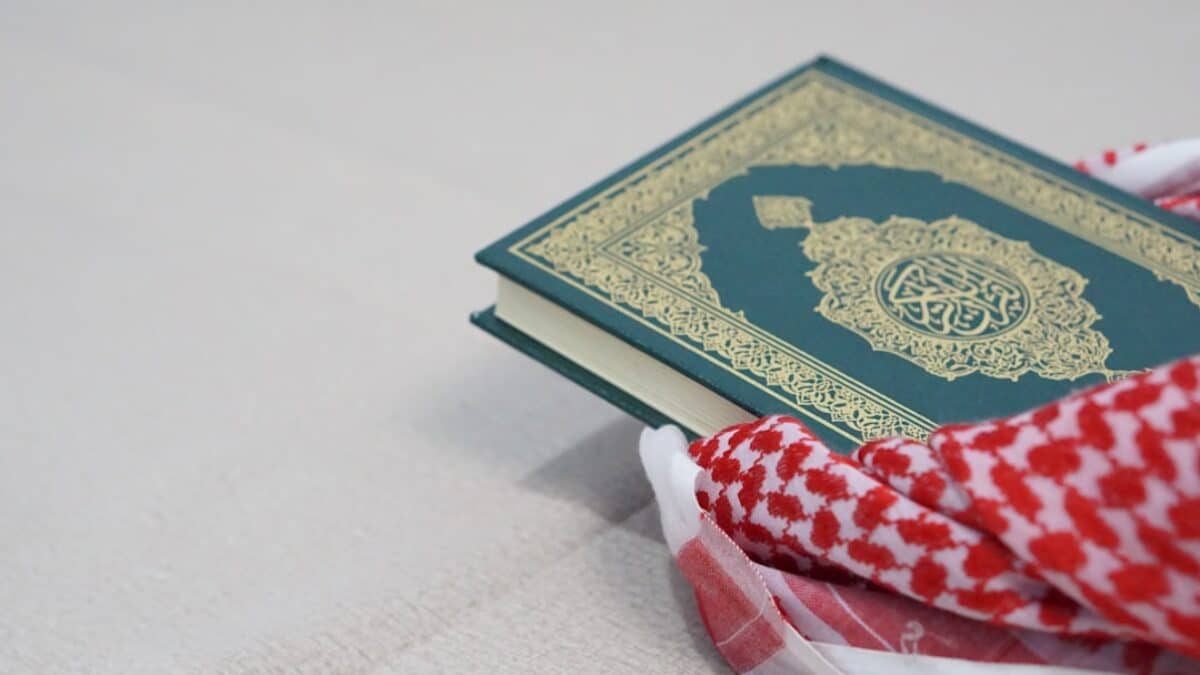When life feels overwhelming and every path seems blocked, many believers instinctively raise their hands in duʿāʾ—the intimate conversation between the servant and the Most Merciful. Far from being a last resort, powerful duas for instant relief in times of hardship and difficulty are a divinely gifted first response, combining heartfelt emotion with prophetic precision. The Qur’an promises, “Call upon Me, I will respond to you” (40:60), and the Sunnah illustrates exactly how and when to call so that solace descends with speed and certainty.
Understanding the Concept of Duʿāʾ for Instant Relief
Definition and Linguistic Depth
The Arabic root d-ʿ-ā carries the dual sense of invocation and summoning help. In Islamic theology, duʿāʾ is not a passive wish; it is an active, transformative act of worship that reconfigures both the external situation and the internal state of the supplicant. Scholars classify duʿāʾ into:
- Duʿāʾ al-Masʾalah—asking for a need (e.g., relief from debt, illness, grief).
- Duʿāʾ al-ʿIbādah—prayers that are inherently acts of worship, like reciting praise and gratitude.
Immediate vs. Deferred Response
Instant relief does not always mean the problem disappears in seconds; rather, Allah may grant instantaneous tranquility of the heart, strategic openings, or swift removal of the trial. The Prophet ﷺ said, “The duʿāʾ of the servant is answered as long as he does not ask for sin or severance of kinship, and as long as he is not hasty.” Hastiness is defined as abandoning duʿāʾ because one deems it too slow. Therefore, patience is part of the velocity of answered prayer.
Key Components of Powerful Duas for Immediate Comfort
Authenticity and Prophetic Source
Authenticity guarantees barakah (spiritual blessing). The most potent duas are those drawn directly from the Qur’an or authentically reported from the Prophet ﷺ. Examples include:
- Āyat al-Kursī (2:255) for protection against every harm.
- The last two verses of Sūrah al-Baqarah for nightly safety.
- The duʿāʾ of Prophet Yūnus: “Lā ilāha illā anta subḥānaka innī kuntu minaẓ-ẓālimī” (21:87).
Tawassul—Leveraging Divine Names and Lofty Rankings
Invoking Allah’s Beautiful Names relevant to the crisis amplifies the plea. When facing oppression, call upon Al-Jabbār (The Restorer); when engulfed in sadness, supplicate through As-Salām (The Source of Peace). Additionally, tawassul—seeking nearness to Allah through righteous deeds, prior good duʿāʾ of others, or the Prophet’s ﷺ intercession—adds weight.
Presence of Heart (Ḥudūr al-Qalb)
Mechanical recitation yields limited fruit; presence of heart turns ordinary words into arrows that never miss their mark. Practical tips include:
- Pause for a slow inhale-exhale before beginning.
- Visualize Allah’s Mercy encompassing you like a vast ocean.
- Translate the Arabic in your mind so meanings penetrate.
Benefits and Importance
Spiritual Re-centering
Hardship often fragments the soul. Duʿāʾ acts as a gravitational force pulling the scattered pieces back to Allah. Within moments, anxiety recedes, focus sharpens, and purpose clarifies.
Psychological Resilience Backed by Neuroscience
Recent studies in clinical psychology note that deliberate spiritual coping—especially repetitive rhythmic phrases with deep meaning—reduces cortisol levels and activates the prefrontal cortex responsible for executive decision-making. Muslims call this “the Sakīnah effect”, echoing the Qur’anic promise: “Those who believe and whose hearts find comfort in the remembrance of Allah—unquestionably, hearts find comfort in the remembrance of Allah” (13:28).
Material Openings
Countless personal narratives testify that doors slammed shut by creditors, employers, or adversaries swing open shortly after sincere duʿāʾ. While causality is ultimately divine, the pattern is observable and reproducible—consistent with Allah’s sunnah.
Practical Applications: A Treasury of 12 Instant-Relief Duas
Timeline-Based Framework
| Scenario | Arabic Phrase | Translation & Usage Notes | Recommended Repetitions |
|---|---|---|---|
| Overwhelming Anxiety | Ḥasbunā Allāhu wa niʿma-l-wakīl | “Sufficient for us is Allah, and He is the best Disposer of affairs.” Recite audibly during panic attacks. | 3 or 7 times |
| Financial Squeeze | Allāhumma akhrijnī mina-l-ḥalāki ilā-l-najāh | “O Allah, take me out from destruction to relief.” Combine with giving ṣadaqah. | 100 times after Fajr |
| Relational Conflict | Rabbanā afrigh ʿalayhimā ṣakīnah (from 21:87) | “Our Lord, pour upon them tranquility.” Recite for calming family tensions. | 11 times after Ṣalāh |
| Illness or Pain | Allāhumma Rabba–ās adhhibi-l-bāsa | “O Allah, Lord of mankind, remove the harm.” Place hand on site of pain. | 7 times |
| Decision Paralysis | Istikhārah duʿāʾ | Full supplication taught by the Prophet ﷺ. | Once, preceded by two rakʿahs |
| Spiritual Dryness | Allāhumma innī as’aluka ḥubbaka | “O Allah, I ask You for Your love.” Revives the heart’s taste for worship. | After every Ṣalāh |
Step-by-Step Nightly Routine for Maximum Impact
- Step 1: Perform wuḍūʾ with intention of mental reset.
- Step 2: Pray two voluntary rakʿahs (Salāt al-Ḥājah).
- Step 3: Recite Sūrah al-Wāqiʿah once for barakah in provision.
- Step 4: Choose the crisis-specific duʿāʾ from the table above; repeat with presence.
- Step 5: Conclude with Ṣalāh upon the Prophet ﷺ and global dua for the ummah.
Real-Life Case Studies
Case Study 1: Layla’s Job Loss
Layla, a marketing executive, was laid off without severance. Each morning she recited the financial-dua 100 times, then sent out applications. On day 18, a former client called with an offer 15% above her previous salary. She attributes the timing and magnitude to consistent duʿāʾ combined with proactive effort.
Case Study 2: Ibrahim’s Child Custody Battle
Ibrahim faced a biased hearing. After every Ṣalāh he recited “Rabbanā afrigh ʿalayhimā ṣakīnah” for the judge, the opposing lawyer, and himself. The judge unexpectedly postponed the hearing, new evidence surfaced, and a favorable settlement emerged. Ibrahim’s lawyer, a non-Muslim, remarked on the palpable shift in courtroom atmosphere.
Frequently Asked Questions
What if I don’t know Arabic fluently—will my dua still be accepted?
Absolutely. The Prophet ﷺ said, “Allah does not look at your appearances or wealth, but He looks at your hearts and deeds.” While Arabic carries linguistic precision, sincerity is the decisive factor. Beginners may recite the Arabic phonetically while simultaneously articulating their need in their native tongue; over time, learning the translation deepens presence.
How quickly can I expect results?
In the realm of duʿāʾ, speed is relative. Some responses arrive within moments (a sudden calm, an unexpected phone call); others unfold over months or years, or Allah replaces the trial with something better. The Qur’an reminds, “Perhaps you hate a thing and it is good for you” (2:216). Continual supplication keeps the heart aligned with divine wisdom.
Is there a best time of day for instant relief duas?
While any time is valid, prophetic guidance highlights special gateways:
- Last third of the night when Allah descends to the lowest heaven.
- Between Adhāand Iqāmah.
- While prostrating, as the Prophet ﷺ said, “The servant is closest to his Lord while prostrating.”
- After obligatory Ṣalāh before engaging in worldly tasks.
Combine these windows with the specific duas for compounded effect.
Can I ask for relief from multiple problems in one dua?
Yes. The Prophet’s ﷺ own supplications were comprehensive: he sought forgiveness, health, provision, and guidance in a single breath. However, maintaining focus enhances presence; you may start with the most pressing need, then expand outward.
What if I feel my past sins are blocking my dua?
Repentance is the solvent that removes barriers. Begin with “Astaghfirullāh” 100 times, then initiate your specific duʿāʾ. The Qur’an promises, “Seek forgiveness of your Lord and then turn to Him in repentance—He will send abundant rain from the sky” (11:52), symbolizing opened doors.
Are group duas more powerful than individual ones?
Both have merit. The Prophet ﷺ said, “The supplication of a Muslim for his brother in his absence is answered; an angel is appointed at his head who says, ‘Āmī, and for you the like.’” When possible, gather family or friends—especially during calamity—but never underestimate the solitary whisper Allah hears from a broken heart.
How can I teach children to use these duas effectively?
Create a “Calm-Down Corner” at home with cards displaying each dua and its meaning. Role-play scenarios: before exams, after a scraped knee, during sibling disputes. Children learn best when they see parents model immediate resort to duʿāʾ instead of panic or complaint.
Conclusion
Hardship is inevitable; helplessness is optional. The treasure trove of powerful duas for instant relief in times of hardship and difficulty equips every believer with a direct hotline to the Owner of the Dominion. By understanding the mechanics—
























Post Comment